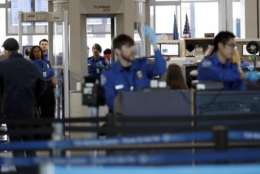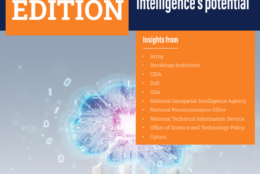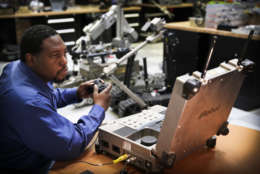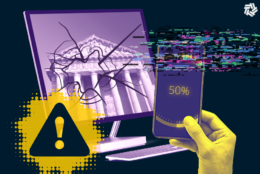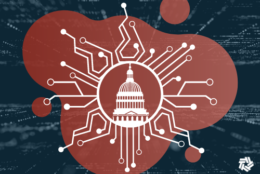Artificial Intelligence
-
In today's Federal Newscast: The Transportation Security Administration’s use of facial recognition comes under congressional scrutiny. The Government Printing Office moves to adopt 19 suggestions to make federal information easier to access digitally. And the Pentagon releases a report on the quality of life for military families.
February 13, 2023 -
The Defense Department is testing out an artificial intelligence tool to help the agency write contracts and speed up the federal acquisition process.
February 09, 2023 -
NIST is rolling out new, voluntary rules of the road for what responsible use of AI looks like for many U.S. industries.
January 27, 2023 -
Following on the heels of a successful pilot that brought artificial intelligence to bear on radiology diagnoses, the Department of Veterans Affairs is looking for new opportunities to enhance its health care with AI.
January 26, 2023 -
A top CIA analyst says ChatGPT won't be giving the president's daily brief anytime soon.
January 25, 2023 -
A White House-led task force is asking Congress to fund its plans to make the federal government’s artificial intelligence resources more accessible to a broader community of researchers.
January 24, 2023 -
As agencies move beyond artificial intelligence and machine learning pilots, we find out what it takes to be successful. We talk with experts from the Army, CISA, DoD, GSA, NGA, NRO, NTIS, OSTP and from ABBYY, DataRobot, H2O, MarkLogic and Red Hat.
January 24, 2023 -
Percipient.AI alleges NGA and prime contractor CACI are ignoring a law requiring agencies to buy commercially available products.
January 13, 2023 -
The Naval Surface Warfare Center Dalhgren Division, like other defense units, seeks to bring new industrial capabilities quickly to benefit the mission. Now it has entered into a new other-transaction-agreement, or OTA, to do just that. OTAs in the right circumstances let agencies speed up acquisitions, often non-competitive ones.
January 11, 2023 -
Artificial intelligence has become an essential tool in our daily lives and has fundamentally altered the ways in which we communicate and work with one another.
January 02, 2023 -
Current and former federal technology executives say software supply chain security emerged as one of the biggest challenges last year given both the attention by the White House and ongoing cyber concerns.
December 28, 2022 -
Taming the sometimes chaotic cloud computing arrangements and learning to love artificial intelligence, those are among the technology trends for 2023 identified by thinkers at Deloitte.
December 27, 2022 -
Federal Chief Information Officer Clare Martorana says among her top priorities for 2023 is break down silos, share lessons learned and scale best practices across the IT community.
December 27, 2022 -
NASA computing and data science people are collaborating to find mission-related applications for artificial intelligence. For their work, they recently received an award from ARTAC, the Advanced Technology Academic Research Center.
December 19, 2022 -
DIA officials and the Pentagon's AI chief see a path forward for the Defense Department to become a machine learning talent incubator.
December 14, 2022

